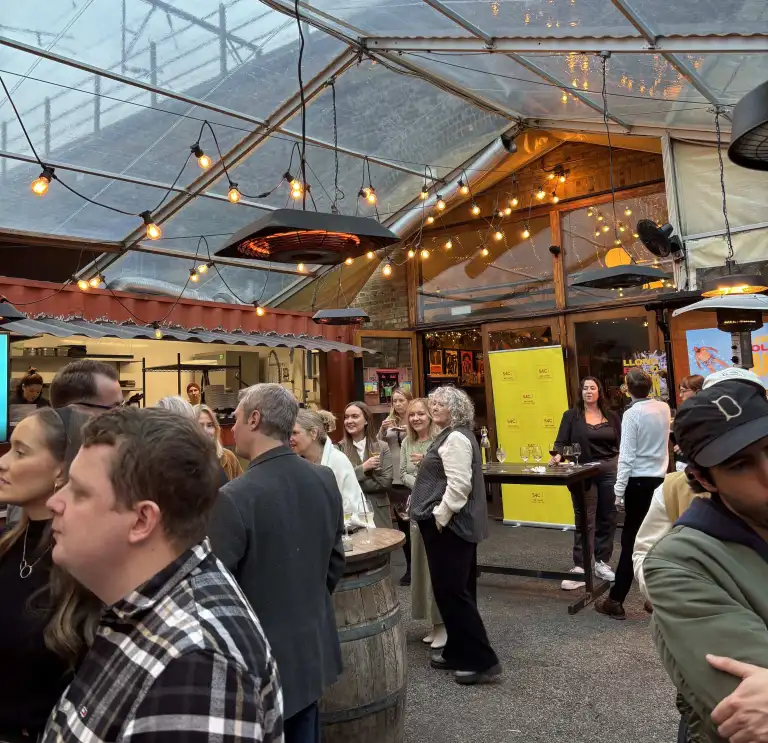It’s December, post Storm Darragh, and a windswept London re-emerges for week two of the festive season. Despite travel disruption, fifty-odd people from Wales and beyond gathered at Brat x Climpson’s Arch, to toast the launch of Chris Roberts’ new series on S4C: Llond Bol o Sbaen (A Belly Full of Spain).
Brat x Climpson’s Arch is a wood-fired, Basque-style restaurant from Anglesey-born chef Tomos Parry. He is also founder, owner and Executive Chef of the acclaimed Mountain in Soho, and Brat in Shoreditch. Both were recently listed in the top fifty UK restaurants, at number two and forty-seven, respectively. Both have Michelin stars.
Unlike its siblings, Climpson’s Arch is rough around the edges. Tucked away under the railway arches, a short walk from London Fields station, it’s the kind of place you’d stumble into after a blustery walk on the Pembrokeshire coast. Yet, despite all of its deliberate imperfections, it moves with style.
At the event, pinchos and wine give us a glimpse of the flavours Chris explores on his culinary tour of Spain. From sobrasada (a spreadable, cured sausage) to cod roe soldiers, pickled sardines and mushroom croquettas, it’s simple food done very well. We watch a teaser of the series, which is sure to engage its audience just as well as Chris holds the room.
What’s interesting is that this is predominantly a Welsh-speaking event, hosted by a Welsh-speaking broadcaster in a restaurant owned and run by a Welsh chef. It all feels very familiar – like home – yet we find ourselves in one of London’s most sought-after neighbourhoods. It signals something.
Little over a year ago, Chris – otherwise known to his social media following as ‘Flamebaster’ – joined Tomos at Climpson’s Arch to celebrate its third birthday. On that day, he was a guest chef alongside Taste Cadets, a popular trio of food content creators. I was at that event, and just like on this day, you couldn’t help but admire the sense of Welshness at something so identifiably “London”.
This time around, food influencers, actors, artists, musicians, chefs and other notable faces listen as two of Wales’s finest ambassadors (Tomos and Chris) discuss the parallels between Spanish and Welsh food culture. Events like these, and the growing awareness of what Wales can bring to the table, all contribute to an idea: that the Welsh food scene is having its moment.
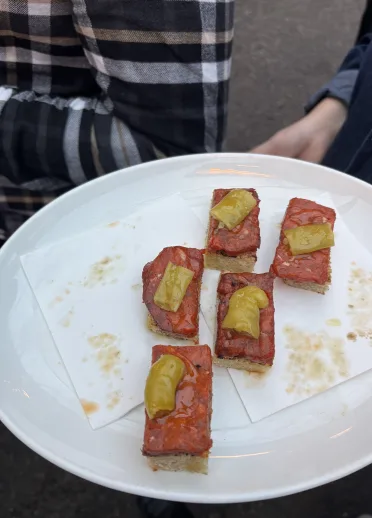
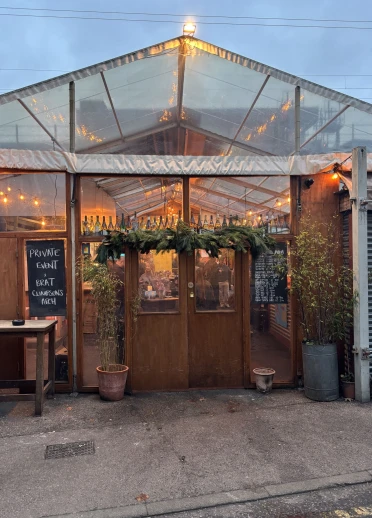
The Welsh food renaissance
All of this is not exclusive to London hotspots; quite the opposite. It goes without saying that the Welsh diaspora is a beneficiary of domestic success. It’s why a nod to Wales on a London menu – whether that’s oysters from the Menai Strait, Welsh lamb, laverbread or the humble rarebit – elicits warmth and a sense of pride. But these are only traces of a food movement that’s stirring in Wales.
In July, it was announced that the Welsh food and drink industry had grown by 10% in the past year. Part of that could well be down to the “new wave” of Welsh restaurants, like the ‘field to fork’ Paternoster Farm in Pembroke, The Shed in Swansea, and Mesen in Cardiff. All are said to embrace local produce and, as the Good Food Guide describes, a “cultural independence”.

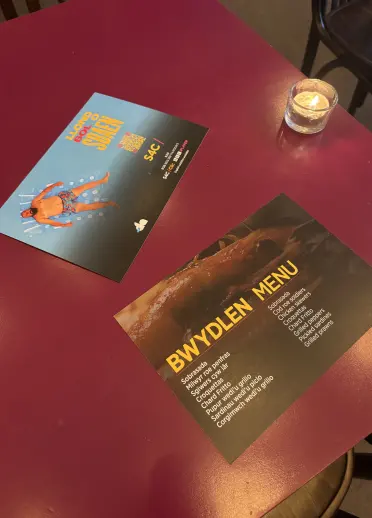
The unavoidable pull of home
This sense of cultural independence is ever-present as a Welsh person living outside Wales. Of course, it isn’t something that only we feel – but we do have our own way of describing it. ‘Hiraeth’ is a Welsh word that means a deep longing for something, particularly one’s home. It is part of the reason why Jonathan Woolway (Executive Chef and Co-Owner of The Shed) decided to leave London’s St John, and return to his native Swansea.
St John is an institution and the home of ‘nose to tail’ cooking. During his tenure, Jonathan rose to Head Chef, and most recently Chef Director, at a time in which St John continued to reimagine the norms of cooking. He has now returned home to fulfill a lifelong dream that draws on inspiration from the surrounding Welsh landscape and produce from local suppliers. On the menu, you’ll find cockle croquettes, potted Câr-y-Môr crab, and Bara brith to name a few.
Tomos Parry has also spoken of ‘hiraeth’. In September, he assembled a team from all three of his restaurants for a two-night residency at Fforest – a two-hundred acre farm near Cardigan. The event gave people a chance to live, eat and breathe the Welsh elements that have made Brat and Mountain what they are. It is this cross-pollination between the kitchens of London and the fields of Wales that puts us on the map.
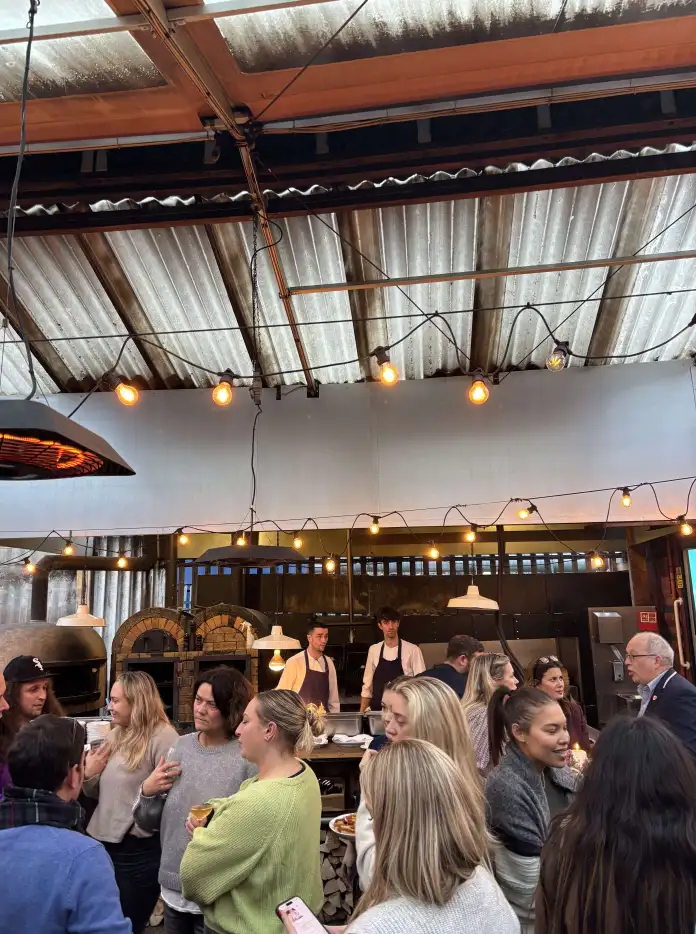
An emerging food scene
It would be naive to think that Wales’ place in the limelight isn’t part of a much broader food movement. Social media has given us unlimited exposure to different types of food, styles and cultures. Celebrity chef status is now anyone’s game, because anyone can be a food creator. Social feeds are full of DIY restaurant reviews and recommendations. And food tourism is connecting people with places once unbeknown to them.
At the same time, it would be unwise to suggest that Wales lacks the necessary qualities to forge its own food identity. We have eateries that pull in diners from far and wide; look no further than Ynyshir in Machynlleth, a two-Michelin starred restaurant.
We have a landscape and coastline sculpted for incredible food. And quality suppliers who know that all too well. Traditional Welsh food is on its comeback tour, and dishes that might’ve been dismissed in recent years are now showing up on some of the hottest menus.
We have personalities at every level of this new culinary era, people who are passionate about Wales and want to see it succeed beyond our borders and shores. From the likes of Tomos Parry, Chris Roberts, Jonathan Woolway, Sian Wyn Owen, Bryn Williams and many more – we are in safe and skilled hands.
Closing thoughts
When I think back to Llond Bol o Sbaen, Chris mentions his admiration and, at times, envy for Spanish food and its obvious yet diverse culture. He asks why Wales, with everything that’s going in its favour, has never embraced food in the same way.
It may not be obvious yet, and Swansea might not ever be San Sebastián, but I believe things are about to change. Slowly – and in typically modest fashion – something is brewing. We are witnessing a renaissance moment for Welsh food, a second coming where there is no need to reinvent, only rediscover what has been there all along.
Jacob Butler is a Welsh creative writer, living in London. With interests in food, sport and music, he shares his view on Welsh culture and its presence outside Wales.
